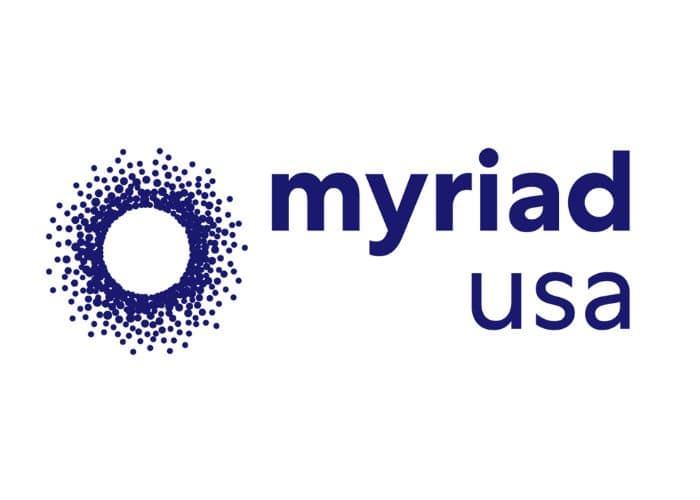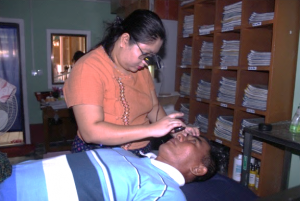- About AVPN
-
-
-
About AVPN
Who We Are
We are a leading ecosystem builder that is increasing the flow of financial, human, and intellectual capital from Asia and around the world into the social sector in Asia. We provide a network of peers, rigorous learning programmes, and innovative capital mobilization opportunities that make sure resources are more effectively deployed.
-
-
-
- Members
-
-
-
Membership Benefits
Unrestricted access to AVPN research reports and case studies
Access market-specific snapshots and opportunities
Increased visibility for events, programs and insights via AVPN website, blog, newsletters and social media channels
Leverage the AVPN platform to bring under-represented social issues top of mind for more than 600 social investors
-
-
-
- Resources
-
-
-
Resources
Highlights of the week
Trust-Based Philanthropy
In the face of increasingly complex and, sometimes rapidly, changing needs on the ground, it is crucial to take a step back and reconsider the status quo.
APAC Sustainability Seed Fund 2.0
By leveraging the success of the first round of the APAC Sustainability Seed Fund, AVPN continues to mobilise continuum of capital into supporting climate solutions in the region.
Faith and Giving
Faith, and the values, belief systems, moral codes, and religious doctrines, that underlie it, shape much of philanthropy across the world. From addressing needs in underserved communities to investing in sustainable energy solutions, faith-aligned givers are demonstrating that compassion can be a catalyst for a more just and equitable world. However, the fundamental drivers of faith-aligned giving often remain unexamined.
-
-
-
- Markets
-
-
-
Markets
We are a leading ecosystem builder that is increasing the flow of financial, human, and intellectual capital from Asia and around the world into the social sector in Asia. We provide a network of peers, rigorous learning programmes, and innovative capital mobilization opportunities that make sure resources are more effectively deployed.
Explore Markets
-
-
-
- Impact Communities
-
-
-
Impact Communities
-
-
-
- Capital Mobilisation
-
-
-
Capital Mobilisation
Featured Deals
Socio-Economic Empowerment of Women
Climate Action and Environment, Education, Financial Inclusion, Gender, Livelihood and Poverty Alleviation
Solve Education: Education through Innovative Learning Platform
Education, Employability, Livelihood and Poverty Alleviation
Lotus Petal Sr. Sec School, Gurugram
Education, Employability, Health
IT Training Against Poverty in Cebu
Education, Employability, Livelihood and Poverty Alleviation
IT Vocational Training Against Poverty
Education, Employability, Livelihood and Poverty Alleviation
Gigatonne: Addressing Problems within the Carbon Credits Market
Climate Action and Environment, Financial Inclusion, Gender, Livelihood and Poverty Alleviation
-
-
-
- Events
-
-
-
Events
Upcoming Events
UN Global Compact 2024 Climate Ambition Accelerator Final Registration
30 April 2024
Restoring Equilibrium: SVCA 2024 Annual Conference – Seeking Balance in A Turbulent World
16 May 2024
-
-
-
Patient care management at the Thazin Orchid clinic in Myanmar
The Patient Care Management Project will cover Medical Action Myanmar’s costs of offering free medical services to approximately 8,000 patients from an extremely poor community in Hlaingthayar Township, Myanmar.
By

Stichting Medical Action Myanmar
Click here to learn more about the Impact Organisation
This is member exclusive
content. Click here to unlock
Social causes
Beneficiaries
SDGs covered
Endorsed by
Market of Implementation
- Myanmar
Problem
As one of the poorest nations in the world, Myanmar is currently facing several critical health crises with a health care system that lacks the capacity and geographic coverage to successfully counter them. The country is heavily-afflicted by tuberculosis, which is the leading cause of death among adults aged 15-49. It is also one of 35 countries accounting for 90% of new HIV infections globally (UNAIDS Fast Track Update on Investments, 2015), with an estimated 224,794 people currently living with HIV. Despite a government that purportedly offers its citizens free health care, nearly 68% of health care expenditures in Myanmar are out-of-pocket, constituting a disproportionately large share of total health spending and reinforcing inequities in health conditions between income groups. With basic health services out of reach for Myanmar's poorest citizens, the resulting dismal health outcomes further dampen their prospects for upward economic mobility. After decades of limited support, the health care system requires considerable strengthening.
Solution
Medical Action Myanmar (MAM) provides free primary healthcare services to the country's poorest and most vulnerable communities. MAM started its operations in June 2009 with the opening of a health clinic in Hlaingthayar Township, one of the biggest and poorest townships in Yangon city. The clinic in Hlaingthayar Township makes primary healthcare services available to the approximately 700,000 people who live and work in the catchment area with a particular focus on HIV-infected individuals and their families, malnourished mothers and children, and some of the most vulnerable key populations including Female Sex Workers (FSW), Men who have sex with Men (MSM), orphans, and young people. Based on previous reports, Hlaingthayar clinic is expected to perform over 100,000 free consultations in the year, and the partial-funding provided by this grant will cover the cost of 8,000 of those consultations. This proposal is a request for US$ 55,000 to support the costs of medicines, salaries, and the care management and nutritional support of patients attending the Thazin Orchid Clinic in Hlaingthayar Township. The clinic currently employs 56 local professionals including medical doctors, nurses, counsellors, outreach workers as well as cleaning and maintenance staff. The clinic's services include:
- Treatment of general patients with focus on children and mothers: The most common pathology in children attending the clinic are respiratory tract infections, diarrhea and skin infections. All children are also screened for malnutrition.
- Family Planning: Family planning is an important aspect of care delivery as it empowers women to make decisions about their own body, the number of pregnancies they wish to have and the best suitable time to conceive.
- Tuberculosis and HIV prevention and treatment: Provide tests for tuberculosis and HIV, which are both common and deadly diseases in Myanmar. Both are complex and long-term ailments that require intensive medical and psycho-social support to improve health outcomes.
- Food and travel support: Patients with serious chronic ailments, such as tuberculosis or HIV, require long-term treatment and support. They are more vulnerable to poverty and loss of income due to poor health and they are less likely to spend money on food and transport fees to visit the clinic on a regular basis. At times, patients feel forced to sell some of their medicines, which hinders long-term treatment outcomes and leads to treatment failure and the development of resistant strains. Therefore, MAM supports a number of patients with food supply for a few months until the patient is physically able to start working again. MAM also provides bus fees so patients can go to the clinic. MAM feels that this has been an important contributing factor to their success in long-term patient treatment, and their low rate of patients dropping out of treatment.
- Laboratory test: Tests are performed at the clinic to investigate a wide range of diseases including but not limited to HIV, Tuberculosis, malaria, syphilis (mother and child), anemia, meningitis, penicilliosis, and cryptococcosis. Various samples (e.g. blood, stool, urine, spinal fluid, lymph node aspiration, and skin smears) are analyzed at the clinic. Funding will enable MAM to continue providing these types of services for 8,000 patients over the upcoming year.

















 Medical Action Myanmar (MAM) provides free primary healthcare services to the country's poorest and most vulnerable communities. MAM started its operations in June 2009 with the opening of a health clinic in Hlaingthayar Township, one of the biggest and poorest townships in Yangon city. The clinic in Hlaingthayar Township makes primary healthcare services available to the approximately 700,000 people who live and work in the catchment area with a particular focus on HIV-infected individuals and their families, malnourished mothers and children, and some of the most vulnerable key populations including Female Sex Workers (FSW), Men who have sex with Men (MSM), orphans, and young people. Based on previous reports, Hlaingthayar clinic is expected to perform over 100,000 free consultations in the year, and the partial-funding provided by this grant will cover the cost of 8,000 of those consultations.
This proposal is a request for US$ 55,000 to support the costs of medicines, salaries, and the care management and nutritional support of patients attending the Thazin Orchid Clinic in Hlaingthayar Township. The clinic currently employs 56 local professionals including medical doctors, nurses, counsellors, outreach workers as well as cleaning and maintenance staff. The clinic's services include:
Medical Action Myanmar (MAM) provides free primary healthcare services to the country's poorest and most vulnerable communities. MAM started its operations in June 2009 with the opening of a health clinic in Hlaingthayar Township, one of the biggest and poorest townships in Yangon city. The clinic in Hlaingthayar Township makes primary healthcare services available to the approximately 700,000 people who live and work in the catchment area with a particular focus on HIV-infected individuals and their families, malnourished mothers and children, and some of the most vulnerable key populations including Female Sex Workers (FSW), Men who have sex with Men (MSM), orphans, and young people. Based on previous reports, Hlaingthayar clinic is expected to perform over 100,000 free consultations in the year, and the partial-funding provided by this grant will cover the cost of 8,000 of those consultations.
This proposal is a request for US$ 55,000 to support the costs of medicines, salaries, and the care management and nutritional support of patients attending the Thazin Orchid Clinic in Hlaingthayar Township. The clinic currently employs 56 local professionals including medical doctors, nurses, counsellors, outreach workers as well as cleaning and maintenance staff. The clinic's services include: